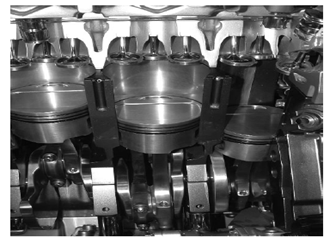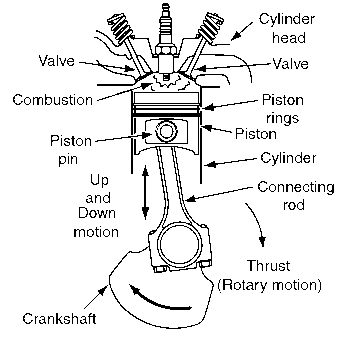←
Automobile Engineering
Engine Construction
Introduction:
Power plant or power unit of an automobile is that component which produces power to drive the automobile. It is generally in the form of an internal combustion engine running on petrol or diesel. In some cases, it can be a gas turbine or steam engine. These are called external combustion engines. However, steam engines are now obsolete and therefore not used for driving any vehicle.
Construction:
- The reliability of an automobile engine depends on the proper construction of the engine components. The constructional details depend on the stresses and the function of the components.
- The overall structure of a gasoline engine depends almost entirely upon the intended application.
- Apart from the type of cycle (two- or four-stroke), the provision for mounting is the main structural difference among automotive, marine, stationary, and aviation engines.
- The clutch is incorporated in the flywheel of the engine.
- Three-point suspension is used in such engines; that is to say, projections on each side of the bell housing fit into the vehicle side-frame members, and a central tubular extension at the center of the front end of the cylinder block attaches to the front cross member of the frame.
- This construction permits some flexing of the vehicle frame without stressing the basic structure of the engine.
Engine Block assembly:
- Very sophisticated casting.
- Made of cast iron or aluminum with cast iron cylinder liners.
- A great deal of machining involved in the process of manufacturing.

